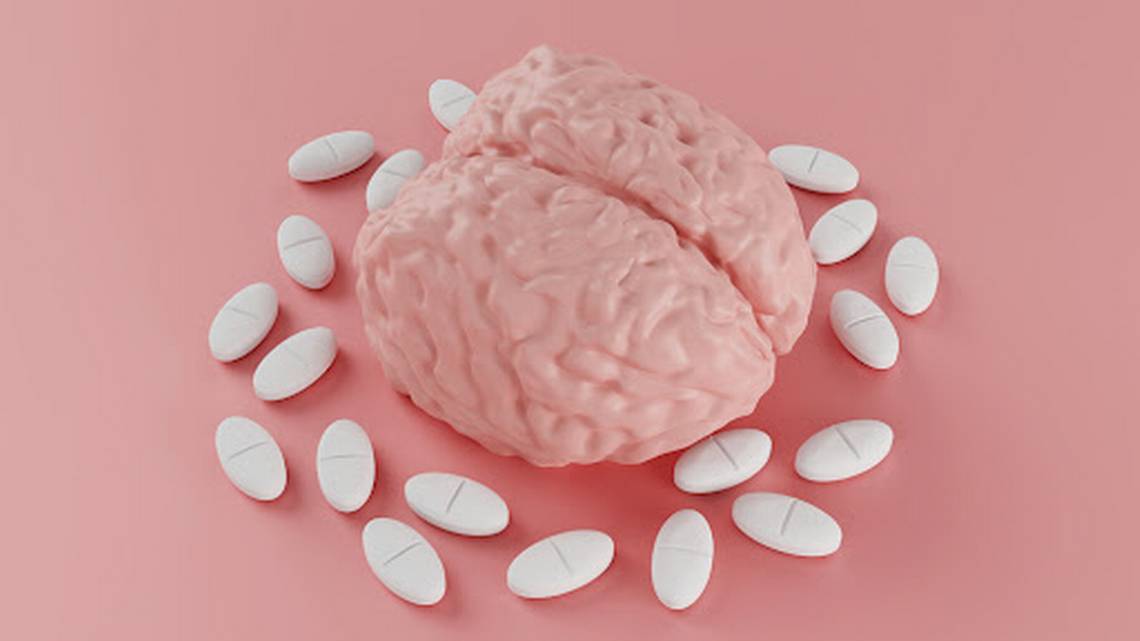Many people struggle with focus, attention, and learning, which is why substances called nootropics are becoming so popular among the general population. Even if your work or school performance is top-notch, most people would love to optimize for even more efficiency.
Nootropics, also known as brain supplements, offer a range of benefits to boost cognitive performance and dial up brainpower. They can help you sustain focus, retain more information, and generally become more efficient in your work. But many questions exist around nootropics, their safety, and what they’re actually doing in your brain.

What Are Nootropics?
Nootropics, sometimes called “smart drugs” or “cognitive enhancers,” enhance cognition and memory and help facilitate learning, motivation, and creativity. From its Greek origins, the word nootropic translates into mind-bending.
Although synthetic (man-made) nootropics have only been around for about 50 years, natural cognitive enhancers that boost brain function date back thousands of years to ancient China and India.
Functions Of Nootropics
Many people are turning to nootropics today to enhance their work performance. Whether you’re experiencing real cognitive decline, have ADD or ADHD, or just want to optimize your workflow, nootropics offer a range of benefits.
Some of the most notable functions of nootropics include:
- Enhancing memory
- Increasing focus and concentration
- Stimulating creativity (thinking outside the box)
- Enhancing brain energy and stamina (working for longer hours)
- Improving motivation
How Do Nootropics Work?
Nootropic is a broad term that defines any substance that enhances cognitive health. So, the mechanisms behind nootropics aren’t all the same. With that being said, there are a handful of common pathways that these smart drugs work on in your brain. Some ways that nootropics help your brain along include:
- Promoting neuroplasticity (the ability for brain cells and networks to grow and change)
- Improving blood flow
- Increasing neuroprotection
- Enhancing resilience against stress
Promoting Neuroplasticity
Neuroplasticity is a term that describes your brain’s ability to change and grow over time. It’s a common belief that after a certain age, your brain stays the same and stops developing. With the understanding of neuroplasticity, however, we now know that our brains are forever reshaping and developing.
Nootropics enhance your brain’s ability to adapt and grow by increasing something called brain-derived neurotrophic factor (BDNF). BDNF is a molecule that naturally declines with age and is intimately involved in brain changes related to memory and learning.
When you take the right nootropics for your individual biology, you may enhance BDNF expression and prime your brain to take in and process new information.
Animal studies show that certain nootropics can enhance BDNF in the hippocampus and cerebral cortex, which are two areas of the brain that have significant roles in memory and learning .
Improving Blood Flow
The more blood flow your brain receives, the more oxygen and nutrients it’s able to take up. When the circulation in your brain isn’t as efficient as it could be, you feel it.
Your brain needs oxygen to create energy, and it needs energy to process information, make new connections, and create lasting memories.
Certain nootropics can enhance the amount of blood flow to your brain by creating more vasodilation, which enhances the amount of blood your vessels are able to carry.
Increasing Neuroprotection
Several environmental and physiological factors can cause inflammation and oxidative stress in your brain. The neuroprotective effects of nootropics help to stave off potential harm and keep your brain cells healthy and fully functional.
Some ways that certain nootropics can protect your brain include:
- Suppressing inflammatory molecules that could damage your neurons
- Protecting your mitochondria (energy centers in the brain) from damage
- Protecting against oxidative stress (cell damage from unbound oxygen atoms)
Your brain function is electrical, so even the most basic process of brain cells transferring information releases free radicals (unbound oxygen atoms).
Enhancing Resilience Against Stress
Avoiding stress altogether is impossible, but learning to manage your stress can make a huge difference in your quality of life.
Along with the uncomfortable feelings that stress generates, chronic stress can have a detrimental impact on your brain, increasing inflammation and oxidative stress.
What’s more, research shows prolonged stress can impair brain function and cause memory loss over time.
Certain nootropics work by helping your brain and body combat stress’s physiological and emotional effects while calming inflammation and oxidation in your brain.
These substances won’t make your stressors go away, but they’ll enhance your resilience and ability to process and deal with the stressors in your life.
- Source: Neuropedia.com/


Share:
2023’s Hot Longevity Supplements: NMN, NR, Resveratrol, Berberine, Quercetin, & Curcumin
What is GABA - The Essential Nootropic Ingredient?